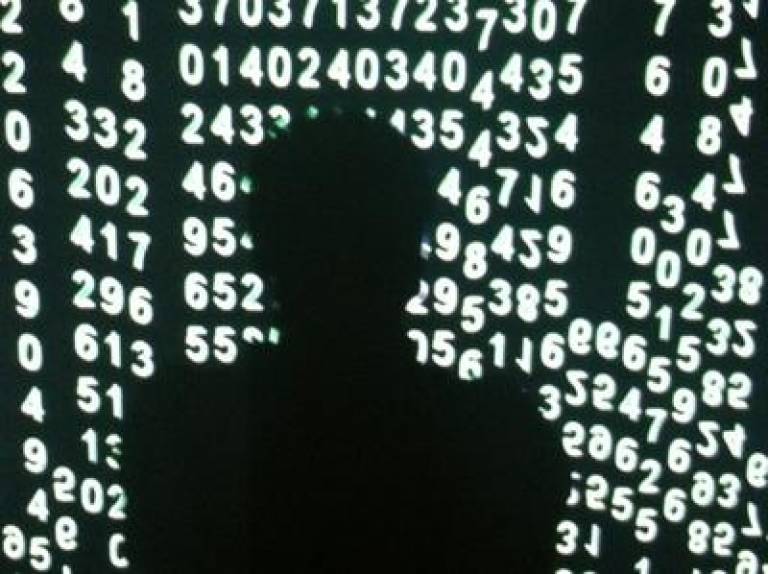What are the territorial implications and manifestations of surveillance and augmenting technologies in contemporary neoliberal cities?

This research sabbatical covers the redefinition of boundaries between private and public spaces by new sociotechnical assemblages supported by a chain of interconnected so-called 'smart technologies'. One of his other projects, funded by the Newton Fund (in a partnership between the ESRC and Brazilian Research Councils), about smart urbanism involves two Brazilian (PUCPR and UFBA) and two British (Durham and Plymouth) universities.
Rodrigo is an Associate Professor in urban management at the Pontifical Catholic University (PUCPR) in Curitiba, Brazil, and a CNPq (Brazil's National Council for Scientific and Technological Development) Research Fellow. Since 2009, he has been chief editor of urbe, a Brazilian urban studies journal that publishes papers in Portuguese, English, Spanish and French. He is also a founding member of the Latin American Network of Surveillance, Technology and Society Studies and has been publishing articles and essays in major journals about surveillance & space, augmented technologies & cities, digital urbanisation, cyberculture, smart urbanism, among other themes.
Rodrigo has previously worked as a postdoctoral fellow at the University of São Paulo in a 3-year project to study the integration between urban and technological developments in the State of São Paulo, Brazil. He holds a PhD in Town and Country Planning from the School of Architecture, Planning and Landscape at Newcastle University (2004), when he worked alongside Professor Stephen Graham and Dr Alessandro Aurigi. The project was sponsored by CAPES Foundation (part of the Ministry of Education), and explored in detail the relations between physical and virtual urban spaces in terms of planning and policy making strategies. Rodrigo also holds an MPhil in Architecture and Urbanism from the University of São Paulo (2000), sponsored by FAPESP (State of São Paulo council for research and innovation), and was trained as architect and planner at State University of São Paulo (1995).
Rodrigo welcomes meeting other researchers and PhD students with similar thematic interests to discuss future forms of collaboration.
Recent selected publications in English
* Firmino, R.; Duarte, F. (Forthcoming, 2015). Private video monitoring of public spaces: The construction of new invisible territories. Urban Studies (Harlow. Print). URL: http://usj.sagepub.com/content/early/2015/01/20/0042098014567064.abstract
* Duarte, F.; Firmino, R.; Crestani, A. 2014. Urban Phantasmagorias: cinema and the immanent future of cities. Space and Culture, May 2015, 18(2): 132-142. URL: http://sac.sagepub.com/content/18/2/132.abstract
* Firmino, R.; Kanashiro, M.; Bruno, F.; Evangelista, R.; Nascimento, L. 2013. "Fear, Security, and the Spread of CCTV in Brazilian Cities: Legislation, Debate, and the Market." Journal of Urban Technology, 20(3): 65-84. URL: http://dx.doi.org/10.1080/10630732.2013.809221
* Firmino, R.; Trevisan, E. 2012. "Eyes of Glass: Watching the Watchers in Monitoring Public Places in Curitiba, Brazil." Surveillance & Society, 10(1): 28-41. URL: http://library.queensu.ca/ojs/index.php/surveillance-and-society/article/view/glasseyes
* Bruno, F.; Nascimento, L.; Firmino, R.; Kanashiro, M.; Evangelista, R. 2012. "Human Traces on the Internet: Privacy and Online Tracking in Popular Websites in Brazil." Novática, 38: 27-33. URL: http://www.ati.es/novatica/2013/ASA/nvS2013sum.html
* Duarte, F.; Firmino, R.; Prestes, O. 2011. "Learning from Failures: Avoiding Asymmetrical Views of Public Transportation Initiatives in Curitiba." Journal of Urban Technology, 18(3): 81-100. URL: http://www.tandfonline.com/doi/abs/10.1080/10630732.2011.615569
* Firmino, R.; Duarte, F. 2010. "Manifestations and implications of an augmented urban life." International Review of Information Ethics, 12: 28-35. URL: http://www.i-r-i-e.net/issue12.htm
* Ultramari, C.; Firmino, R. 2010. "Urban beings or city dwellers? The complementary concepts of urban and city." City & Time, 4(3): 29-40. URL: http://www.ceci-br.org/novo/revista/viewarticle.php?id=143
* Murakami Wood, D.; Firmino, R. 2010. "Empowerment or repression? Opening up questions of identification and surveillance in Brazil through a case of identity fraud." Identity in the Information Society, 2(3): 297-317. URL: http://link.springer.com/article/10.1007%2Fs12394-010-0038-y
* Duarte, F.; Firmino, R. 2009. "Infiltrated city, augmented space: information and communication technologies, and representations of contemporary spatialities." Journal of Architecture, 14(5):545-565. URL: http://www.tandfonline.com/doi/abs/10.1080/13602360903187493
Recent selected research grants
* 2015-2019 - CNPq (National Research Fellowship): "Territories and territorializations in the Augmented City". Professor Rodrigo Firmino (PI), £22,000.00.
* 2015-2016 - Newton Fund - Research Councils (UK)/CONFAP (Brazil) Research Partnerships: "Augmented urbanity and smart technologies: how "smart" are our cities becoming?". Professor Rodrigo Firmino (PI, Brazil) and Professor Simon Marvin (PI, UK), £98,600.00.
* 2014-2016 - CNPq (Universal): "Territorialities of surveillance". Professor Rodrigo Firmino (PI), £5,300.00.
* 2012-2014 - Agence Nationale de la Recherche (ANR): "Habitele: Wearable Digital Identities". Professor Dominique Boullier (PI, France), Professor Rodrigo Firmino (PI, Brazil), £19,000.00.
* 2012-2015 - CNPq (National Research Fellowship): "Augmented City: social, cultural and spatial aspects". Professor Rodrigo Firmino (PI), £10,000.00.
* 2010-2011 - International Development Research Centre - IDRC Research Grant: "Efectos Sociales del Tratamiento y Regulación de Datos Personales en América Latina". Professor Nelson Arteaga Botello (PI, Mexico), Professor Rodrigo Firmino (PI, Brazil), £29,000.00.
 Close
Close

